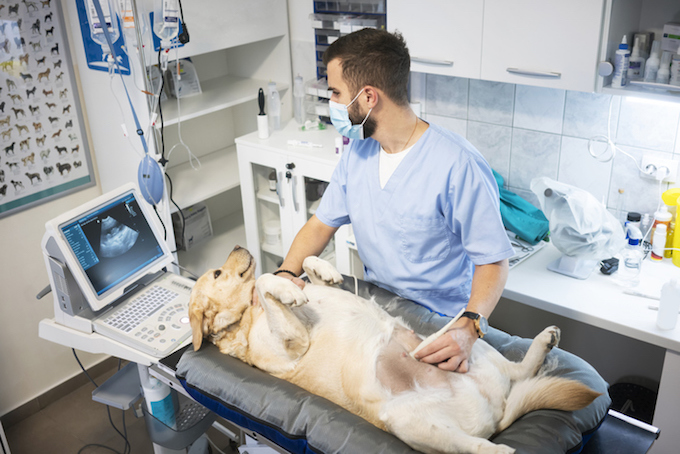Premature labor in dogs leads to the early delivery of a puppy. Dogs are usually pregnant for 63 days. Pups born before 58 days are considered premature.
Generally, physical and mental distress can cause the condition in dogs.
Additionally, infections can also cause the condition.
If you see the signs of premature labor in your dog, then get to a veterinarian for a proper diagnosis and treatment.
Here’s what you should know about the symptoms, causes, and treatments for the condition.
Symptoms Of Premature Labor In Dogs
Premature labor in dogs can produce lots of symptoms. Some of the most common symptoms include:
- Barking a lot
- Vomiting
- Discharge (with blood)
- Low temperature
- Appetite loss
- Acting clingy
Causes Of Premature Labor In Dogs

Stress is a big cause of the condition. Some of the things that can cause stress include:
- Moving home
- Very cold temperatures
- Very loud noises
- Being boarded
- Witnessing a loud argument or fight
Some of the other causes of the condition include:
- Lyme disease
- Herpes
- Bacterial infection
- Hormone problems
- Malnutrition
Finally, genetic issues can also cause the condition.
Treatments For Premature Labor In Dogs
First of all, if your dog starts premature labor, consult your vet. Consider this a medical emergency.
In most cases, your vet will want to carry out a full physical examination of your dog. Blood and urine tests will also be taken.
Additionally, an ultrasound can also be used to check on the health of the fetus.
Your vet will recommend treatment based on your dog’s condition. For instance, in some cases a stillborn fetus will need to be removed. In other cases, premature puppies will need to be taken to intensive care.
Also, any infections will need treating. Antibiotics are usually prescribed to treat infections. As always, follow your vet’s instructions when it comes to giving your dog any medicine.
Have you ever cared for a dog who suffered from premature labor? How did your vet help your dog recover from the condition? Let us know in the comments section below.




